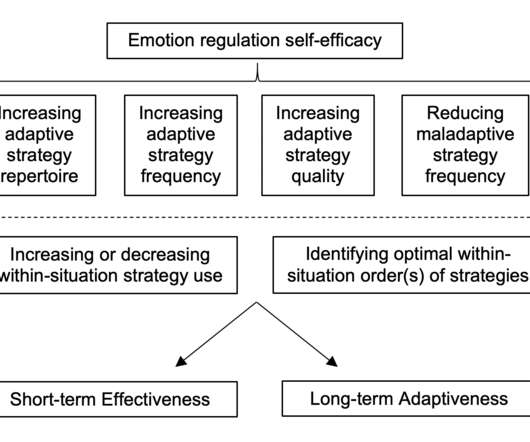Do Dialectical Behavior Therapy-Based Interventions Decrease Adolescent Externalizing Symptoms? A Meta-Analysis
Society of Clinical Psychology
JULY 19, 2023
2019), only a minority of youth with these difficulties receive interventions with strong research support (McCart & Sheidow, 2016). Despite DBT’s focus on changing thoughts and behaviors that precede and relate to interpersonal conflict, externalizing problems are rarely examined as a primary aim in DBT-based intervention studies.













Let's personalize your content